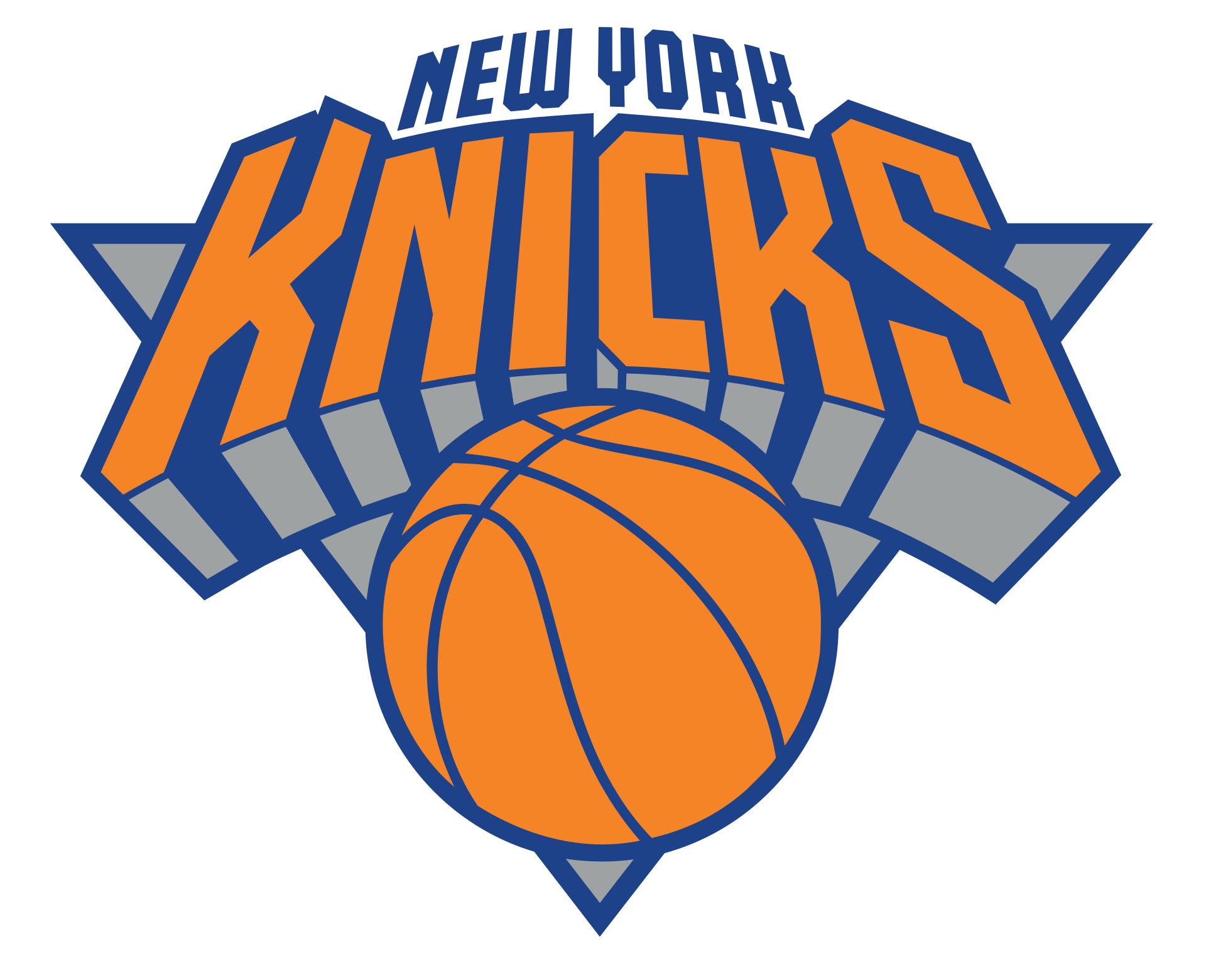Father Knickerbocker
In a Seinfeld episode, to make small talk with the Doorman while waiting for the elevator, Jerry asked, “How ’bout those Knicks?” The Doorman interpreted the comment as condescending, “Oh, I see. On the sports page…What makes you think I wasn’t reading the Wall Street page? Oh, I know, because I’m an uneducated doorman.” However, the concierge was merely manifesting his own security as Americans are fixated on all things sports. Headlines announcing the World Series scores have taken pride of place over international crises. The New York Times devotes more space to sports than it does to “lesser affairs.” Moreover, sports can even influence the world of politics. People didn’t love Ike, (as in President Eisenhower,) as much when the passed-up baseball’s opening day of the season in Washington, D.C. in favor of playing golf in Georgia. In contrast, President Kennedy garnered votes because he and his siblings played touch football.
While the television viewers understood Jerry’s reference to the Knicks, many would be hard-pressed to know the origin of the name of the National Basketball’s franchise. While it takes no stretch of the imagination to surmise the genesis of monikers such as the Jets, the Giants, and the Yankees, what leads to head- scratching: why the moniker Knicks?
The first colonists to settle in The Big Apple were the Dutch who called it New Amsterdam in honor of their hometown across the ocean. (When the British took over, they christened the island New York in tribute to the Duke of York, the future King James.) The fashion of the time involved pants that ended just below the knee, a garment known as knickerbockers, which led to the association of fashion and nickname. During the Gilded Age, the Knickerbockers belonged to an exclusive club due to their lineage and family fortunes. Some of these famous descendants: Roosevelts, Schuylers, and Beekmans. Caroline Schermerhorn Astor, in allegiance to her Dutch ancestry, looked down her patrician nose at those who did not share her august antecedents.
In 1809, the term entered popular parlance when Washington Irving-famous for his book The Legend of Sleepy Hollow- penned a parody, A History of New York: From the Beginning of the World to the End of the Dutch Dynasty. For his satire, Irving wrote under the pseudonym Dietrich Knickerbocker. Post publication saw the emergence of Ruppert’s Knickerbocker Beer, the Broadway musical Knickerbocker Holiday, Hearst gossip columnist Cholly Knickerbocker, and the Knickerbocker Hotel.
A century later, in 1946, Edward "Ned" Irish, the president of Madison Square Gardens met with other executives at The Commodore Hotel-so named after Cornelius Vanderbilt who had the nickname The Commodore. They created a New York-based team and they wanted it to have ties with the city. Team executive Fred Podesta recalled, “The name came out of a hat. We were all sitting in the office one day and we each put a name in the hat, and when we pulled them out, most of them said Knickerbockers, the symbol of New York City. It was soon shortened to Knicks.” The team adhered to another Big Apple tradition when they kept the official colors of New York of orange, blue, and white. The genesis of the colors stemmed from the Dutch ties to Prince William of Orange and the flag of the old Dutch republic.
The team participated in the first official NBA game when they played against the Toronto Huskies; the Americans won 68-66 in front of 7,000 fans at Maple Leaf Gardens. Promoters had offered free admission to anyone taller than 6 foot eight inches. As of 2023, the franchise is valued at approximately $6.6 billion, making it the most financially successful team in the NBA.
The venue for the sporting event also had historic roots. Madison Square Gardens was so-called after Madison Square Park, a nod to James Madison, the fourth American president. The initial site of the 1879 arena was a former railroad depot near the park, the property of the Gilded Age robber baron William Vanderbilt. 
Although the Knicks do not have a mascot, Madison Square Gardens possesses a spiritual one. Washington Irving created him in his novel where the character wore a wig, three-cornered hat, buckled shoes, and pants that ended just below the knee. He answers to the name Father Knickerbocker.

